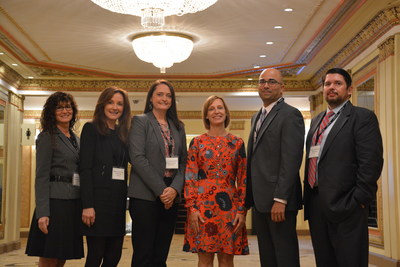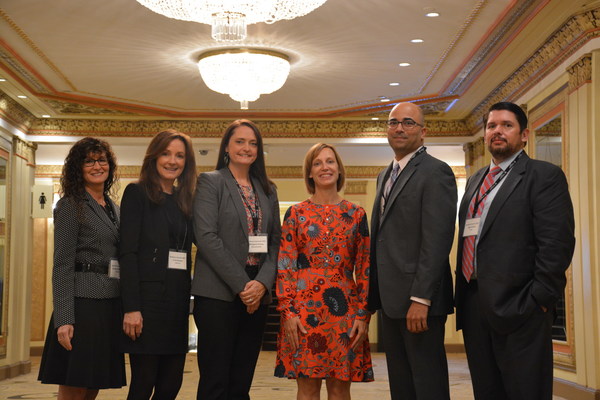Wounded Warrior Project Partnership Taking PTSD Treatment to New Heights
CHICAGO, Nov. 1, 2017 /PRNewswire-USNewswire/ -- One-in-five veterans deployed to Afghanistan or Iraq lives with the symptoms of post-traumatic stress disorder (PTSD). That estimate, from a RAND study, helps make the invisible wound of war one of the signature injuries of the global war on terror.

PTSD symptoms may range from anxiety, isolation, guilt, insomnia and intrusive thoughts. Responses to these symptoms may include irritability, hypervigilance and social isolation. The range and manifestation of symptoms makes PTSD complex and challenging for clinicians to treat.
An innovative collaboration between Wounded Warrior Project® (WWP) and four top academic medical centers addresses those challenges. Warrior Care Network® is a partnership to bring world-class mental health care to injured veterans around the nation.
"Warrior Care Network uses specially designed intensive outpatient programs to address and minimize PTSD symptoms," said Roger Brooks with WWP. "Our partners provide more than 70 hours of direct clinical interventions in just two-to-three weeks.
Roger recently joined clinicians from Warrior Care Network partners to discuss the benefits and results of the collaboration.
"Wounded Warrior Project allows us to treat without constraints," said Dr. Niranjan Karnik, Clinician at Road Home at Rush University Medical Center. "It allows us to experiment and create a better care model."
Warrior Care Network sets the parameters of care: use evidenced-based therapy, provide multiple forms of care, track patients results, and most importantly, treat warriors with the utmost respect and compassion.
"We provide behavioral therapy, Cognitive Processing Therapy, and Prolonged Exposure Therapy to address PTSD symptoms," said Dr. Peg Harvey, Co-Director for the Intensive Clinical Program at Home Base, a Red Sox Foundation and Massachusetts General Hospital Program.
"Typical dropout rate in these types of programs approach 50 percent nationwide," said Dr. Barbara Rothbaum, Clinical Director at the Veterans Program at Emory Healthcare. "Warrior Care Network has a completion rate of 96 percent. This is the optimum model for treating PTSD."
"The care is compressed, and integrated with other ways to address stressors," said Dr. Jo Sornborger, clinician at Operation Mend. "Each program has a family component and supportive care including yoga, equine therapy, and acupuncture."
Read more about how Warrior Care Network addresses the invisible wounds of war at warriorcarenetwork.org
About Wounded Warrior Project
Wounded Warrior Project® (WWP) connects, serves, and empowers wounded warriors. Read more at https://www.woundedwarriorproject.org/mission.
SOURCE Wounded Warrior Project
